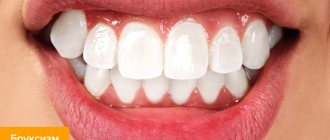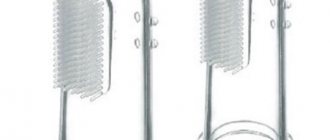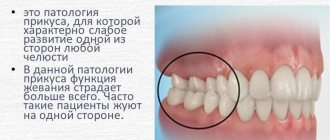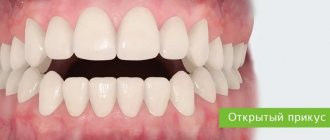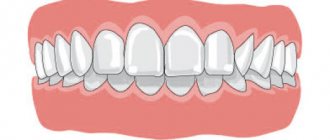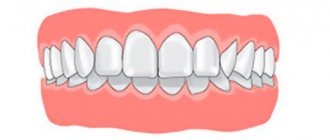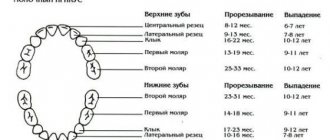First, let's figure out why this even happens? Why does a child suck his thumb? After all, in fact, this is a fairly common occurrence not only in families with children, but also where there are preschool children. At what age is thumb sucking normal?
“At the age of 2-3 months, the child finds his hands and immediately puts them in his mouth for research,” says child psychologist Ksenia Nesyutina . “This is absolutely normal and if parents, worried that the child will suck fingers in the future, do not allow sucking and put a pacifier in the mouth, then this is harmful to the child’s development. After all, in order to start using your hands, in order for motor skills to develop, you must first find and explore your hands with your mouth.
Well, if the baby has grown up, but the habit remains, you need to figure it out. The causes of thumb sucking can be different.
- At the age of about 1 year, thumb sucking may indicate an unsatisfied sucking reflex. As a rule, at this time children are actively transferred from breastfeeding or formula to regular food. Not all children easily adapt to this and sometimes begin to express their lack by sucking their fingers, explains Ksenia Nesyutina. – And over the age of 2 years, thumb sucking is usually a sign that something is bothering the child. Often these anxieties are associated with separation from the mother: the mother goes to her room at night and the child, experiencing this, begins to calm himself down by sucking his finger. But there may be other more complex anxieties. In the future, this may transform into the child biting his nails, picking at wounds on the skin, or pulling out hair.
Thus, we understand: if the baby is just beginning to get acquainted with his body and the world around him, then let him calmly suck his fingers. Nothing will happen. But if time passes, the little person grows and has been going to the garden for a long time, and his fingers are still “hiding” in his mouth, measures must be taken.
But weaning a child from thumb sucking is not an easy task.
Photo: globallookpress.com
Find the moment
It turns out that “finger in mouth” is not just a habit. According to our expert, psychologically speaking, thumb sucking may be an ingrained compensatory mechanism.
“In other words, thumb sucking gives the child (compensates) something that he cannot receive emotionally,” says Ksenia Nesyutina. - For example, we are talking about an anxious mother - it is difficult for her to calm her child down, give him support and confidence. To somehow calm himself down, the child does not use “mother’s calmness”, but sucks his finger. That is, the child is already 3-4-5 years old, and he still calms down like a 3-4 month old baby - with the help of sucking.
To wean a child, you need to find the root cause. That is, to understand why the child puts his hands in his mouth, what he is replacing in this way, and how he can provide this need on an emotional level.
— It is important to pay attention at what moments the child puts his fingers in his mouth: for example, before bed, when he plays with toys, in kindergarten. Most likely, these are stressful moments for the child. It is important to help the child adapt to this activity so that it does not cause so much anxiety in the child, the psychologist recommends.
Healthy
How to wean a child off a pacifier
Probably, the finger is, after all, more dangerous for children's health than the pacifier.
This is explained by the fact that the finger, larger than the tip of the pacifier, affects the territory of the oral cavity. It is also believed that it is much more difficult to wean a baby from thumb sucking - after all, it is always “at hand”, the finger cannot be taken away and hidden. The use of the pacifier can be more or less controlled - “lose”, “give to the neighbor’s puppy”.
First of all, weaning off any bad habit should under no circumstances be traumatic, either physically or psychologically. Grandmother's methods of spreading mustard or brilliant green on your finger are not recommended. Abruptly taking away the pacifier is also not justified. It is better to use unobtrusive persuasion, a game form. If necessary, consult your doctor.
Through the game
It’s probably no secret to you that games for children are not only a way to pass time, but also a way to get to know the world around them, help them develop, and sometimes even serve as therapy.
Play can help a child cope with anxiety.
“If the child is over 3 years old, then from a psychological point of view, it is possible to wean the child if the need for thumb sucking goes away,” notes Ksenia Nesyutina. - That is, the child is anxious and compensates for anxiety by sucking his thumb. And here parents should get involved: you can help cope with anxieties and fears through games, conversations, lullabies, and reading fairy tales. It is much better for the child to play with toys or draw what he is afraid of, what he is worried about, than to simply compensate for this tension by sucking his finger.
How to wean a child from thumb sucking?
More recently, there were, one might say, “old-fashioned” methods of getting rid of this negative habit. And to this day, some well-wishers can advise an alarmed mother in such very ambiguous ways as:
- smearing your fingers with mustard, an extract from aloe leaves, applying a bitter varnish to your nails or sprinkling your fists with pepper (the main thing is that the product has an unpleasant taste);
- restriction of movements by bandaging the fingers, putting mittens on the hands, tightly swaddling (if it comes to infants) or tying the arms to the body of older children;
- constant screams that sound every time the child puts his finger to his mouth;
- threat of punishment for trying to suck a finger or direct punishment.
Some parents consider such methods quite effective, while others point out their cruelty. For example, mustard can harm the oral mucosa.
Such restrictive measures often end in a relapse into a bad habit. As soon as parents stop tying their hands or lubricating their fingers with something bitter, the baby begins to suck even more intensely in order to calm down and restore a positive psychological attitude.
Parents should choose the most painless method for eliminating negative attachments. The most reasonable and obvious step is to find and eliminate the root cause why the baby sucks his fingers.
Up to 2 years
Usually, by the beginning of the second year of life, the sucking reflex fades away on its own. However, due to the dissatisfaction of the basic instinct in infancy, thumb sucking can become a habit. The rules for getting rid of addiction will depend on the way the child is fed.
Breast-feeding
If a baby feeding on mother's milk additionally sucks a finger, the mother, first of all, should make sure how correctly she has established the feeding of the baby. Most likely, the reason is very simple - the baby is hungry and demands his mother’s breast. What to do?
- Try increasing the duration of feeding. Let the baby stay at the breast for more than half an hour. In this case, the sucking baby will be full and satisfy basic instincts.
- If you give your baby both breasts at one meal, try offering them at regular intervals. That is, the second breast is given only after the baby has suckled the first for 25 minutes.
- There is no need to worry that your child will overeat. No matter how long he stays near his mother’s breast, he will take the amount of milk that is necessary for complete saturation.
- If your baby gets distracted by something while feeding, there is no need to cut the meal short. Wait a little, and the baby will return to his mother’s breast on his own.
If possible, wind down the feeding process gradually. At first you need to reduce the number of daytime feedings, and only then move on to night feedings. This will allow the baby to experience weaning more calmly.
Artificial feeding
If the child is an artificial person, then weaning off a bad habit will be done in slightly different ways. In the case of IV, children are fed according to a certain schedule, and a portion of the formula is dosed. What to do in such a situation?
- Reduce the intervals between meals if your baby begins to pull his fingers towards his mouth. This is a signal that he is feeling hungry.
- To fully satisfy the sucking reflex, you should purchase a pacifier that allows you to lengthen the feeding process. The device must be rigid and have a smaller hole.
- Instead of a finger, offer your child a pacifier, but to avoid harmful effects on the teeth, it is better to take an orthodontic model. It ensures the correct position of the tongue in the oral cavity and promotes the optimal structure of the incisors.
If your baby is teething, you need to purchase a high-quality teether with an additional cooling element. This device will help the child give up his fingers.
In general, expert advice regarding the habit of sucking fingers at this age comes down to satisfying the sucking reflex. Mother's breasts, a bottle with formula, or an orthodontic pacifier can come to the rescue.
From 2 to 5 years
When a baby is 2 or 3 years old, the factors that cause him to suck his thumb are no longer associated with reflexive behavior. The psychological causes of obsessive behavior are at the forefront.
Among the main reasons for the formation of a bad habit or its return, experts identify the following “catalysts”:
- dysfunctional family environment;
- strict parenting methods;
- lack of mother's attention;
- problems getting used to kindergarten;
- psycho-emotional overload;
- fears.
Before moving on to solving the problem, you need to establish its true cause. You can do this yourself by analyzing your own and your child’s behavior, or you can contact a specialist who will also tell you how to wean your baby from thumb sucking. General recommendations are:
- Pay more attention to your child. Read books, communicate, engage in outdoor games, play a small ball more often to keep children's fingers occupied. In general, give your child warmth and a feeling of security.
- Reduce emotional or intellectual stress. This is especially true for those mothers who are passionate about the idea of early education for their children. Another rule is to give up exercise in the evening, instead of playing games, introduce the ritual of bathing in the bath.
- Closer to the age of five, children develop various fears and phobias: fear of the dark, monsters, fairy-tale characters. An impressionable child strives to suck his finger and calm down. It is better to combat this reason with the help of psychologists.
- Avoid punishment, especially corporal punishment. Three-year-old children are already able to explain the reason for their behavior. In turn, they can also be told why thumb sucking is ugly and unhygienic.
If you have spent a lot of effort and have not achieved a positive result, you should contact a psychologist or psychotherapist. A specialist will help you cope with an intractable problem.
From 5 years and older
If a child sucks his thumb even after the age of five, parents should be wary. In most cases, such a habit indicates serious psychological problems that require professional intervention.
Thus, some cases of thumb sucking in school-aged and adolescent children are a manifestation of obsessive-compulsive neurosis, arising for physiological and psychological reasons (for example, due to severe stress).
To make sure that a bad habit is a symptom of this disorder, you need to pay attention to other signs. Thus, a child sucking his finger may demonstrate:
- winding hair around a finger or pulling out curls;
- biting nails or, for example, pencils;
- scratching or pinching the skin;
- obsessive cough.
Older schoolchildren often demonstrate obsessive thoughts, various ritual actions, high anxiety, various fears, and depressive mood.
Naturally, to make or exclude such a diagnosis, you need to contact a neurologist or psychiatrist. The specialist will prescribe the necessary medications and psychotherapeutic procedures - play, cognitive or art therapy.
Parents in such a situation should follow the following recommendations from specialists:
- provide a comfortable home environment;
- prevent emotional and intellectual stress, so as not to aggravate the course of the disease;
- refuse to focus children's attention on thumb sucking and other obsessive actions;
- track every change in children's behavior.
Of course, you shouldn’t scold your child for such addictions. Punishment will only intensify the manifestation of negative symptoms and lengthen the recovery period.
Prohibit: yes or no
However, you must admit that watching a grown child slobber on his finger again is very unpleasant. The parent is an adult and understands that this is wrong, but not everyone knows how to react competently. And what begins? “Take your finger out of your mouth!”, “So I don’t see this,” “You can’t!” and stuff like that.
But, firstly, this technique does not always work. And secondly, this can be fraught with consequences.
“A direct ban on thumb sucking or other radical measures, for example, sprinkling pepper on the fingers, lead to even more negative consequences,” emphasizes psychologist Nesyutina. “If previously the child could not cope with psychological stress and compensated for it by sucking his thumb, now he cannot even do this. So what's going on? Tension goes inside, into the body, and can subsequently manifest itself in even more “strange” behavior or even illness.
Therefore, you should not solve the problem with a “whip” - it is better to re-read the previous two points again.
Adviсe
How to stop a child from sleeping with his parents
No stress - no problems
And there is also this story: everything seems to be fine, the child has no bad habits, but suddenly - suddenly! – and the child begins to suck his fingers. And the baby, by the way, is already four years old!
Don't panic.
— In moments of stress, even a 3-4 year old child or even a preschooler can start sucking their fingers. You can pay attention to this, but, as a rule, as soon as the stress is compensated, the habit disappears by itself, says our expert.
But stress can be different, and if you understand the reason (let’s say the whole family moved to a new place or the child was scolded by the grandmother), then you can talk it out, console, and reassure. And if thumb sucking occurs, seemingly for no apparent reason, then it won’t hurt the parent to “prick up their ears” and try to understand, ask the child what is bothering him or who scared him.
Why is this habit bad?
It is enough to list just a few important consequences. With constant sucking of a pacifier, the muscles of the oral cavity develop unevenly, not as nature intended for them. The orbicularis oris muscle turns out to be “overdeveloped” and is constantly in hypertonicity. Other muscles, on the contrary, remain underdeveloped.
Children who have a reverse infantile tongue-thrusting type of swallowing (the tongue is between the front teeth) always suffer from an open bite, in which the front teeth do not close together. The dentition becomes deformed, the position changes and the teeth become separated.
In children who suck a pacifier or thumb over the age of 1 year, very often a vertical gap forms between their front teeth or, alternatively, the upper front teeth lean forward strongly. All this affects not only the appearance of the child, but also his health.
Popular questions and answers
What are the consequences of constant thumb sucking?
— If you don’t go into physiological problems that may be associated with bite and speech, then at least this is a symptom that indicates that the child has difficulties in psycho-emotional terms. These are not necessarily complex, insoluble problems, but they are worth paying attention to, and perhaps the parent should change the way they care for and communicate with the child, the psychologist recommends.
In what cases should you seek help from a specialist?
You need to go to a specialist if this issue greatly worries the parent. The fact is that thumb sucking most often indicates that the parent cannot provide the child with a feeling of stability and reliability. And if the mother herself is drowning in anxiety, then outside help, moreover, the help of a specialist, will definitely not hurt,” says Ksenia Nesyutina. – If we are talking about a child, then it is better to start with a pediatrician. He will prescribe an examination of the necessary specialists. But, as a rule, psychologists work with this problem.
What is the treatment for bite treatment?
To put it “scientifically”, what we see is nothing more than an “ open bite
” - one of the most severe malocclusion pathologies in the practice of orthodontists. And this example shows well the effectiveness of solving and treating open bite pathology in children. Most often, in such cases, wearing an ELASTOPOSITIONER is prescribed - an orthodontic mouthguard for children made of medical silicone. The wearing mode for the treatment of an open bite is HOME - this is when a child, both day and night, while at home, must hold such a mouthguard in his mouth, clamping it with his teeth. Knowing the cause of such an overbite and eliminating it, we clearly show how the correction occurs. And all the above violations correct themselves!
Aesthetics and Function - these are the two most important parameters!
Now the girl is 11 years old. And so far we do not see the need for any additional treatment!!! So, the period for occlusion correction is 3 years and 1 year of passive monitoring of stability. Are you ready for this treatment for your child? Then don't wait for braces, contact us! Health to everyone, Yours Alexander Spesivtsev
Articles by Alexander Spesivtsev on the website
- A bitter experience with braces or a story about how aligners helped improve the situation
- Wisdom teeth: remove or treat?
- Protrusion of teeth. Treatment of bite protrusion with aligners

